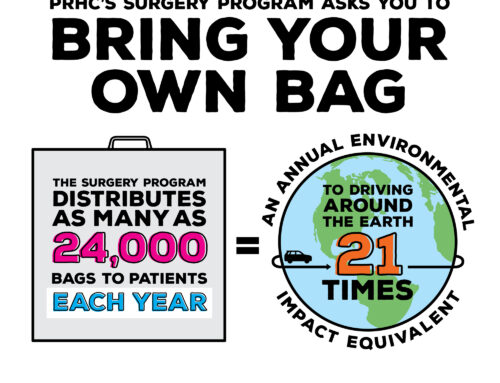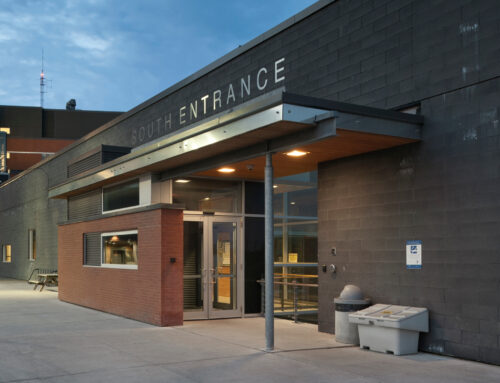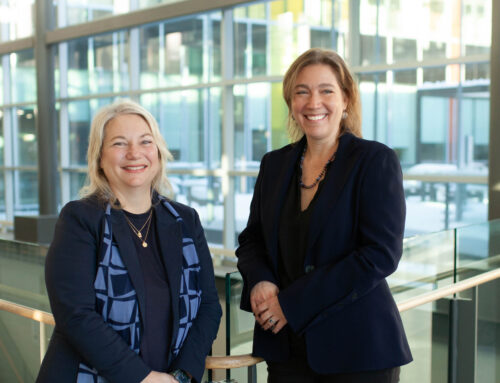PRHC to require designated essential caregivers and further limit visiting as COVID-19 activity increases in community and hospital
(Peterborough, ON) – With COVID-19 activity increasing in the community and the hospital, PRHC is moving to a more restrictive phase of our visiting policy beginning Tuesday, January 26.
Under this new phase of the temporary policy, a number of key changes will take effect:
- A limited number of designated essential caregivers will be permitted for hospital inpatients. Each caregiver will be registered; other visitors will not be permitted during the patient’s hospital stay.
- Certain patient groups will be permitted a reduced number of visits.
- Visiting hours for inpatients on general hospital units will be 2:00 p.m. to 8:00 p.m., subject to additional restrictions in each area as detailed below.
While we have limited access to the hospital over the past several months as part of the health system response to COVID-19, PRHC’s has worked hard to balance safety considerations with supporting the care needs of our patients and their families throughout the pandemic. This next phase of our visiting policy represents a tightening of our existing restrictions to limit traffic through the hospital while ensuring patients are receiving an essential level of support.
PRHC continues to strongly encourage the use of our Virtual Visiting program to support ongoing family presence while helping to keep our patients, staff and community safe. For more information about booking a visit through this program, call 705-876-5815 or email virtualvisits@prhc.on.ca.
What is a designated essential caregiver?
In the hospital setting, an essential caregiver or care partner is a person who provides support to an individual with limited capacity, an urgent medical condition, age-related issues, disability or chronic health concerns. Caregivers may be family, friends or neighbours, and there is no age requirement to provide care. Young caregivers, adult children, spouses and peers can all provide support. These individuals are considered essential when their presence is deemed beneficial to the assessment, diagnosis, and physical and/or mental health care of the patient.
Under the new phase of the temporary visiting policy coming into effect at PRHC on Tuesday, January 26, patients may be visited only by specific, designated caregivers, subject to the following enhanced restrictions which will take effect at PRHC beginning today:
- Emergency Department (ED) and Crisis Response Unit (CRU) patients will be permitted one (1) essential caregiver/family member maximum in the following cases:
- Patients experiencing threatened early pregnancy loss.
- Patients requiring resuscitation
- Patients with serious illness who require caregiver presence for assessment/diagnosis/support
- Patients with dementia, delirium, altered mental status of any cause, frailty, disability or limited capacity
All other ED/CRU patients will be permitted one (1) essential caregiver/family member maximum at the discretion of the care team.
- ICU/Critical Care patients will be permitted two (2) designated essential caregivers/family members maximum. Only one designated caregiver/family member will be permitted in the patient room at a time. Additional caregivers/family members may be permitted at the discretion of the care team.
- Labour & Delivery patients will be permitted one (1) designated essential caregiver/family member.
- Neonatal Intensive Care Unit (NICU) patients will be permitted two (2) designated essential caregivers/family members. One caregiver will be permitted with the patient at a time. The two designated caregivers will be permitted to switch out with one another during the same day.
- Pediatric and Child & Adolescent Psychiatric Unit (CAPU) patients (under the age of 18) will be permitted two (2) designated essential caregivers/family members. One caregiver will be permitted with the patient at a time. The two designated caregivers will be permitted to switch out with one another during the same day.
- Palliative Care and end-of life patients will be permitted a maximum of two (2) designated essential caregivers/family members. These two designated caregivers may visit the patient simultaneously or separately.
- Alternate Level of Care (ALC)/long-term patients with a hospital length-of-stay longer than 14 days will be permitted a maximum of two (2) designated caregivers/family members. Only one (1) designated caregiver may visit at a time. One (1) visit per patient, per week.
- Behavioural patients with cognitive/neurological impairment will be permitted a maximum of two (2) designated essential caregivers/family members. Only one (1) designated caregiver may visit at a time. One (1) visit maximum per patient, per day at the discretion of the care team.
- All other general hospital inpatients not specified above, and who have a hospital stay of three (3) or more days will be permitted a maximum of two (2) designated essential caregivers/family members. One (1) visit maximum per patient, per week, and only one (1) caregiver may visit at a time. General inpatients with an expected hospital stay shorter than three days will not be permitted visitors during their stay.
- Surgical and procedural patients who require sedation will continue to be permitted one (1) designated essential caregiver/family member for drop-off and pick-up only. This individual will be permitted to return for same-day patients to ensure discharge instructions are communicated and to provide an opportunity to ask questions. Support people will not be permitted to wait inside the hospital or to visit the patient after the surgery/procedure. Wayfinders will be available to take patients to and from the main doors as required.
- Dialysis and Cancer Care outpatients who require medical assistance may need one (1) caregiver to attend for specific appointments, as determined by the care team. Wayfinders will be available to take patients to and from the main hospital entrance as required.
- All other ambulatory/outpatient clinic patients will be permitted one (1) essential caregiver/family member maximum per day at the discretion of the care team.
- Diagnostic Imaging (DI):
- Patients who are having an obstetrical ultrasound may have a maximum of one (1) essential caregiver/family member attend.
- Patients who are having a sedated or interventional radiology (IR) procedure may have a maximum of one (1) essential caregiver/family member attend before the patient is discharged to ensure instructions are provided with opportunities for questions.
- Pediatric patients may have a maximum of one (1) essential caregiver/family member attend.
- Patients requiring special assistance during a test or procedure may have a maximum of one (1) essential caregiver/family member at the discretion of DI staff/radiologists.
- For all other diagnostic imaging tests and procedures, caregivers/family members will not be permitted at this time due to limited space in waiting areas.
- Patients who are suspected or positive for COVID-19 will be permitted one (1) designated essential caregiver/family member per patient, subject to specific restrictions, and only for the following patient populations:
- Emergency Department
- Pediatric and CAPU patients (under the age of 18)
- Labour & Delivery patients
- NICU patients o Patients at end-of-life o ICU/Critical Care patients
The care team will explain all applicable restrictions at the time the patient is admitted and/or tests positive for COVID-19. The designated caregiver must not be positive for COVID-19, must not be under instruction to self-isolate by Public Health, and must pass the hospital’s screening process to be permitted entry.
An individual who meets the necessary criteria to be a designated essential caregiver for a patient who is suspected or positive for COVID-19 will be carefully instructed and closely observed by the care team to safely wear and dispose of personal protective equipment (PPE).
The turnaround time for COVID-19 test results for inpatients is typically 24 to 48 hours. When a patient suspected for COVID-19 receives a negative test result, visiting can resume based on the criteria listed above.
Designated essential caregivers coming to the hospital will continue to be screened at both public entrances. They will be asked to wear a mask at all times when in the hospital, including in the patient/bed area, to check in at the nursing station on the patient unit before proceeding to the patient room, and to clean their hands well and frequently while at the hospital. Designated essential caregivers are not permitted to eat or drink in any area of the Health Centre, including in patient rooms.
This policy will remain in effect until further notice. Thank you for your co-operation and diligence as we work together to keep our patients, families and community safe.
For news, updates, information and resources related to COVID-19, visit our website at: https://www.prhc.on.ca/about-us/covid-19-novel-coronavirus/
-30-
For more information: Michelene Ough | Director, Communications | mough@prhc.on.ca







